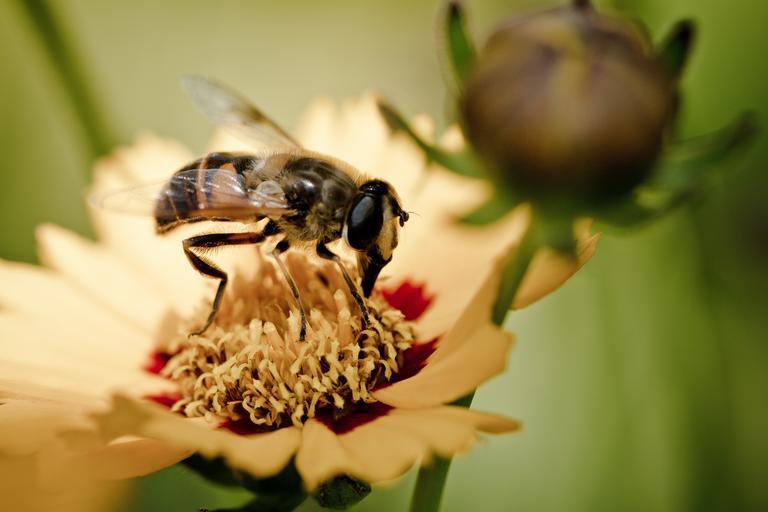MAKE A MEME
View Large Image

| View Original: | Pollinating.jpg (4014x2676) | |||
| Download: | Original | Medium | Small | Thumb |
| Courtesy of: | www.flickr.com | More Like This | ||
| Keywords: usgs science pollinator bee insects ecosystems fly biology pollination Pollinating — Here we see a hoverfly fly (aka - syrphid fly or flower fly) landing on a flower at a local nursery to grab a quick batch of pollen. Although we may not think about it often, pollinators are very important both to ensuring that crop plants produce full harvests and in maintaining or increasing biodiversity. Do you enjoy a hot cup of coffee, a juicy peach, an-apple-a-day, almonds, rich and creamy dates, a handful of plump cashews, or vine-ripened -- sun-kissed, plump tomatoes? If so, you depend on pollinators. Without the assistance of native and managed pollinators, most plants cannot reproduce. The USGS works to provide the science decision-makers need to support pollinator conservation. We are working closely with our federal, state, and other partners to model and better understand pollinator habitats and habitat requirements, and inventory native bees and other pollinators in protected areas, forests, and other land types throughout the United States. We are pioneering genetic studies of bees to better track where they’ve been and what plants they’ve visited and/or pollinated. Learn more about pollinator research at USGS: on.doi.gov/pollinators Photo credit: Scott Horvath. Pollinating — Here we see a hoverfly fly (aka - syrphid fly or flower fly) landing on a flower at a local nursery to grab a quick batch of pollen. Although we may not think about it often, pollinators are very important both to ensuring that crop plants produce full harvests and in maintaining or increasing biodiversity. Do you enjoy a hot cup of coffee, a juicy peach, an-apple-a-day, almonds, rich and creamy dates, a handful of plump cashews, or vine-ripened -- sun-kissed, plump tomatoes? If so, you depend on pollinators. Without the assistance of native and managed pollinators, most plants cannot reproduce. The USGS works to provide the science decision-makers need to support pollinator conservation. We are working closely with our federal, state, and other partners to model and better understand pollinator habitats and habitat requirements, and inventory native bees and other pollinators in protected areas, forests, and other land types throughout the United States. We are pioneering genetic studies of bees to better track where they’ve been and what plants they’ve visited and/or pollinated. Learn more about pollinator research at USGS: on.doi.gov/pollinators Photo credit: Scott Horvath. | ||||